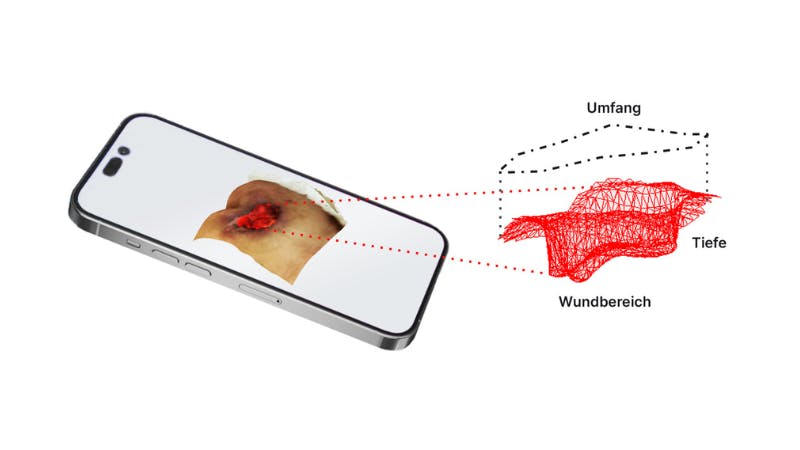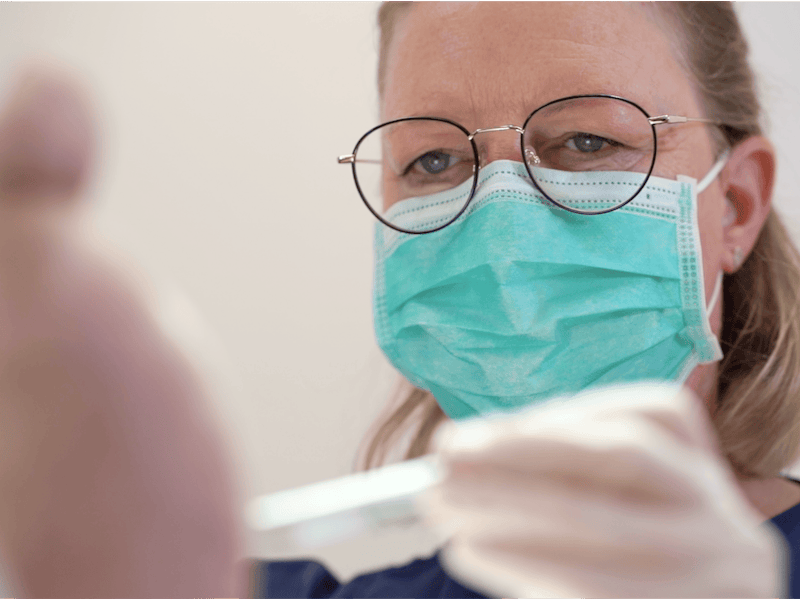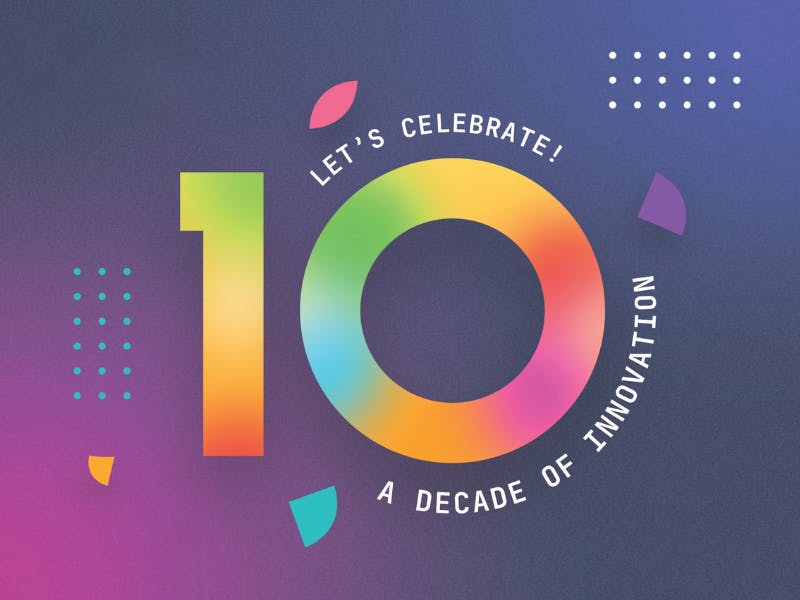Wound treatment is a key component of health care. As a result, innovative approaches to predictive, preventive and more personalized medicine (PPPM) are critical in modern healthcare. In this article, you learn how wound treatment with the help of artificial intelligence (AI) contributes to a faster wound healing and the challenges that this presents.
In the US, 25 billion US dollars are spent annually on the treatment of chronic wounds for over 6 million patients. Treatments are highly personalized and result from suboptimal health conditions and serious pathologies such as diabetes. Moreover, chronic wounds are influenced by unpredictable risk factors. Therefore, individualized treatment and prevention are essential for a successful healing. This is extremely time intensive and there is often a lack of qualified wound experts to deal with such cases.
In times of increasing use of digitalization, it's evident that wound treatment and wound documentation are also supported by digital functions and tools. But how can artificial intelligence (AI) transform wound care?
Artificial intelligence for wound healing
For individual and time-consuming wound care, experts use systems medicine, predictive diagnostics, preventive procedures, and treatments tailored to the individual. To further optimize this systematic approach, artificial intelligence (AI) offers the opportunity to revolutionize the healthcare system and reshape it internationally.
“The huge amount of contributions in the field of biomedical data analysis with artificial intelligence only confirms that using AI to obtain predictions in the healthcare sectors will improve patient assistance and patient care in the future direction.” - Dr. Sofia Zahia
In fact, with the evolution of technical resources and their advances, AI is now being used to ensure better assessment and diagnosis of patients through medical imaging. The growing computational power and clinically relevant algorithms of AI are causing these constant developments and improvements. For example, cognitive computers are capable of scanning billions of pieces of unstructured information, extracting relevant data while recognising complex patterns and relationships.
Advantages of AI-supported applications
AI-supported applications perform complex functions that are normally the responsibility of specialists. Artificial intelligence has tremendous potential, especially in wound treatment.
For example, AI-based applications offer the following benefits:
- Improving diagnostic accuracy, imaging and intervention.
- Increasing efficiency and workflow
- Executing complex assignments
- Enhancing the learning process
Artificial intelligence assists specialists in wound treatment and healing
One of the greatest challenges in wound treatment is the prediction of healing. This is essential to achieve wound closure. Especially in chronic wounds, their multifactorial complex nature makes prediction difficult. This problem results from the complex interaction of many interrelated factors. Similarly, this complexity also includes the health condition of patients beyond the wound, thereby dominating the overall healing process. In order to successfully apply AI in wound treatment, applications must be prepared with substantial information enabling medical professionals to use it as a scientific tool.
Currently, complete diagnosis by computers is still being developed, and collaboration between humans and technological devices is indispensable. However, current wound care for patients is adapting to today's digitalization and is based on the current digital opportunities. For example, new wound measurement apps and clinical apps, such as the imitoWound-App are already supporting numerous medical professionals. The use and possibility of such technologies is changing the way wounds are assessed and treated, thereby significantly minimizing the time required for patient care.
Optimization of preventive treatment using AI
Wound treatment often demands preventive intervention by the healthcare professionals. To enable this to be implemented in a timely manner, regular wound assessment and observation is essential. Recognizing risk patterns and factors is a time-consuming challenge for experts and requires profound knowledge and years of experience. With the help of AI, it's now possible to recognize complex interaction patterns at an early stage, treat the wound individually and adapt the medical therapy.
Despite all the advantages of AI, engineers and people with expertise in such AI-based applications can face some challenges. In particular, data protection is paramount in such systems. Furthermore, it's important to remove old or poorly processed data from the system so that no wrong conclusions are drawn during research. These and other challenges are constantly controlled thanks to the continuous improvement of the algorithms and the collected data, which is paramount to produce accurate results and generate the most optimized outcome.
Wound treatment using AI has immense potential and is at the same time the result of the advancing digitalization. From treatment to prevention, this technological approach has already changed wound treatment in a groundbreaking way and continues to involve.
Dr. Sofia Zahia: imito is reshaping digital wound care management using AI
Through a successful collaboration with the leading research partners in the domain of wound expertise, AI and healthcare-training (HEdS and University of Geneva), imito will enhance their wound care management Apps by providing throughout AI :
- automatic characterization and measurement of the wound;
- guidance to document the wound’s evolution longitudinally and provide evolution prediction;
- accurate information regarding which treatment and dressings to use depending on the available information and validated international guidelines;
- adequate training in wound care to augment the level of knowledge of HCPs
The mission of imito is to expand the expertise of HCPs in wound care by offering a new AI-based Clinical Decision Support (CDS) to offer automated explanations about treated wounds.
Source: Wiley Online Library
Expert: Dr. Sofia Zahia - Artificial Intelligence Engineer at imito AG.
Before joining imito, Sofia completed her PhD, jointly between the University of Louisville in the USA and the University of Deusto in Spain, on Deep Learning for biomedical image analysis, obtaining a Summa Cum Laude by unanimity. Her dissertation led to the publication of several articles in Top-tier international peer-reviewed journals.





